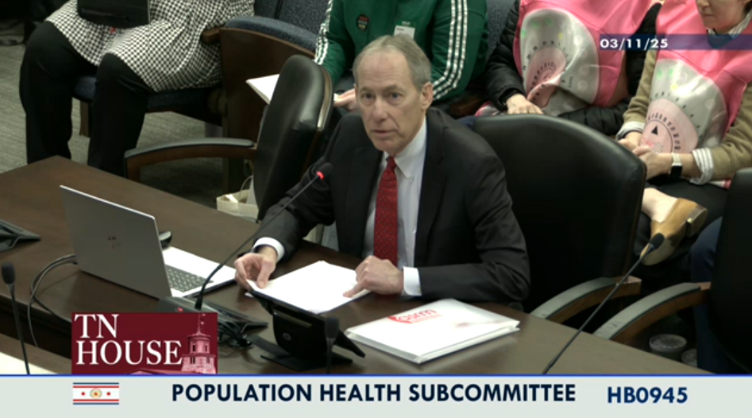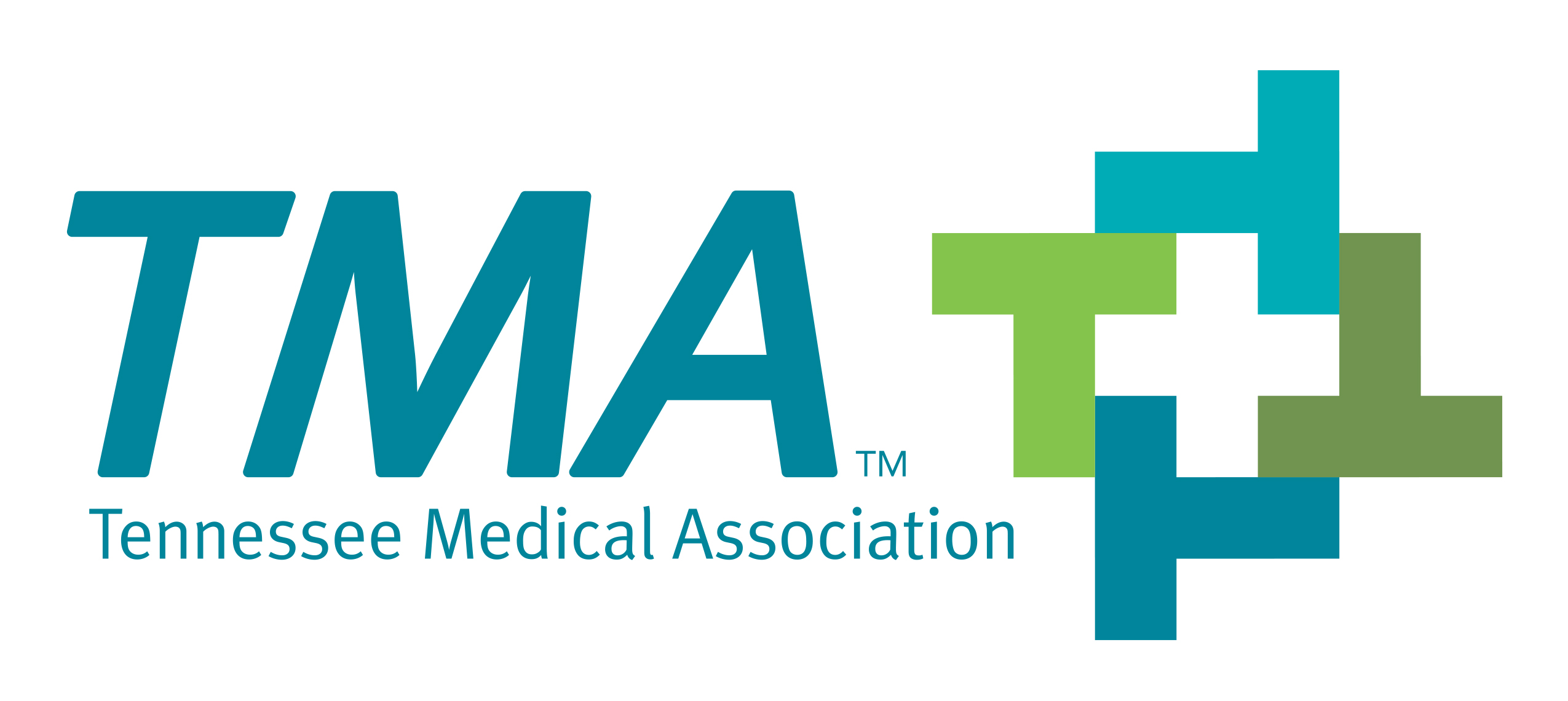TMA Testifies on IVF Bill, Psychologist Prescribing Up Next Week

TMA Testifies on IVF Bill, Psychologist Prescribing Up Next Week
Legislation seeking to further regulate fertility care in Tennessee was delayed in the House Population Health Subcommittee on Tuesday thanks to the testimony of a TMA member.
As amended, SB793/HB945 by Sen. Paul Bailey (R-Sparta) and Rep. Ryan Williams (R-Cookeville) would set forth new guidance on assisted reproductive technology and embryology laboratories. The bill proposes a “model agreement” whereby prospective parents and their treating physician would agree to three criteria: 1) a prohibition on genetic testing for the selection of embryo transfer; 2) a prohibition on fertilization of more than four times the number of children a prospective parent hopes to have; and 3) a clear understanding of the custodial care of unused or abandoned embryos. The proposal would also require fertility clinics to annually report pregnancy success rates and submit to inspections by the Tennessee Department of Health.
The House sponsor stated clearly that his legislative intent was not to prohibit the practice of in vitro fertilization (IVF), but rather to place further guardrails around fertility clinics to prevent situations like the 2024 Alabama Supreme Court ruling which declared that embryos created through IVF should be considered children.
 TMA member and reproductive endocrinologist/infertility specialist, Dr. George Hill, testified to the superfluous nature of the legislation, noting that much of the criteria outlined in the model agreement are already being addressed via a consent form developed by the Society of Assisted Reproductive Technology (SART). Further, clinic outcomes are already being reported to federal agencies pursuant to the Fertility Clinic Success Rate and Certification Act of 1992.
TMA member and reproductive endocrinologist/infertility specialist, Dr. George Hill, testified to the superfluous nature of the legislation, noting that much of the criteria outlined in the model agreement are already being addressed via a consent form developed by the Society of Assisted Reproductive Technology (SART). Further, clinic outcomes are already being reported to federal agencies pursuant to the Fertility Clinic Success Rate and Certification Act of 1992.
In addition to regulatory concerns, Dr. Hill noted that limiting access to genetic testing and embryo fertilization would be “extremely detrimental” to patients and inconsistent with the current standard of care.
For the full recording of Dr. Hill’s testimony, click here.
After thorough discussion from the committee members, most prominently its two physician members, the sponsor elected to roll the bill one week to continue working with Dr. Hill on the medical community’s concerns and assess how best to proceed with legislative action. The bill has been reset on the House Population Health Subcommittee for next Tuesday, March 18 at noon CT.
FERTILITY AND CONTRACEPTIVE TREATMENTS
A Republican-backed measure to protect access to fertility treatment and contraceptives cleared its first major hurdles this week.
As filed, SB449/HB533 by Sen. Becky Massey (R-Knoxville) and Rep. Iris Rudder (R-Winchester) would declare that an individual has a right to engage in activities associated with fertility treatment and contraceptives, and that the law “unambiguously acknowledges” this right. Under the proposal, fertility treatment includes:
- The preservation of human oocytes, sperm or embryos for later reproductive use;
- Artificial insemination, including intravaginal, intracervical and intrauterine insemination;
- Assisted reproductive technology, including in vitro fertilization;
- Genetic testing of embryos;
- Medication prescribed or obtained over-the-counter, as indicated for fertility; and
- Gamete donation
The bill also defines contraceptives to mean “any device, medication, biological product or procedure that is intended for use in the prevention of pregnancy, whether specifically intended to prevent pregnancy or for other health needs, and is legally marketed under the federal Food, Drug and Cosmetic Act.”
Dubbed the Fertility Treatment and Contraceptive Protection Act, the measure is one of several that have been introduced this session aimed at codifying protections, but is the only one that has successfully advanced. Lawmakers unanimously approved the bill in the House Population Health Subcommittee on Tuesday and Senate Health & Welfare Committee on Wednesday. It now heads to the House Health Committee scheduled for next Tuesday at 1:30 pm CT. While the Senate companion bill has yet to be calendared for a full floor vote, it is expected to be taken up in the coming week.
RIGHT TO FORGO MEDICAL TREATMENT
A proposed constitutional amendment that would prohibit the state from requiring residents to undergo medical treatment without due process of law— even in declared states of emergency— narrowly passed the House Health Subcommittee on Wednesday.
The resolution, HJR28 filed by Rep. Gino Bulso (R-Brentwood) defines medical treatment as “any procedure, drug administration, vaccination or other intervention intended to diagnose, treat, prevent or mitigate any physical or mental condition.” If passed, the resolution would effectively invalidate decades-long precedent affirming the state’s compelling interest to protect public health. This includes requiring students to be vaccinated prior to enrolling in school.
Based on the amendment’s due process provision, the resolution also raises questions as to whether patients could be involuntarily committed for psychiatric care prior to an appearance before a judge, an issue that could become problematic if an individual under duress is unable to be constrained.
Rep. Tom Leatherwood (R-Arlington) expressed concerns about the measure, stating that efforts to amend the state Constitution went “too far” based on lessons learned from the Covid-19 pandemic. He opined that the legislature should approach these issues on a case-by-case basis rather than an overarching prohibition.
Despite heated debate from committee members, the bill successfully advanced on a 5-3-1 vote, with Reps. Tom Leatherwood, Bo Mitchell, and Sam McKenzie standing with TMA in opposition. The proposal now heads to the House Health Committee where it will be heard next Tuesday at 1:30 pm CT.
PSYCHOLOGIST PRESCRIBING
A proposal seeking to give new prescribing authority to psychologists is on notice in the House Health Subcommittee next Wednesday.
As filed, SB911/HB996 by Sen. Ferrell Haile (R-Gallatin) and Rep. Brock Martin (R-Huntingdon) would create an “advanced certificate to prescribe as a prescribing psychologist,” which would give psychologists prescriptive authority rather than requiring them to refer patients to a psychiatrist. Such authority would include controlled substances (except for opiates and narcotics), lab tests, devices or treatment.
The bill enumerates certain eligibility requirements for this new prescriptive authority, including completion of an educational program leading to a post-doctoral master's degree in clinical psychopharmacology from a regionally accredited college or university (or its equivalent as determined by the psychology board), successful completion of an unspecified exam, and successful completion of a one-year fellowship under the supervision of a physician or prescribing psychologist.
While the legislation specifies that psychologists under this model would be prohibited from prescribing to patients who are not concurrently under the care of a treating physician or other primary care provider, it does not require a formal collaboration agreement with a physician, directly undermining the team-based care model TMA has fought to preserve for over a decade. In addition, the bill lacks sufficient educational parameters and licensing board safeguards to adequately effectuate its implementation, putting patients at risk for serious misdiagnosis and mismanagement of dangerous medications.
Using the talking points linked in our call-to-action below, TMA is asking members to contact the House Health Subcommittee and urge them to vote “no” on this legislation. If you are a constituent of any of these members, you can send an email directly through our grassroots platform.
- Chair, Rep. Brock Martin (R-Huntingdon) – rep.brock.martin@capitol.tn.gov
- Rep. Ron Gant (R-Piperton) – rep.ron.gant@capitol.tn.gov
- Rep. Tim Hicks (R-Gray) – rep.tim.hicks@capitol.tn.gov
- Rep. Timothy Hill (R-Blountville) – rep.timothy.hill@capitol.tn.gov
- Rep. Tom Leatherwood (R-Arlington) – rep.tom.leatherwood@capitol.tn.gov
- Rep. Sam McKenzie (D-Knoxville) – rep.sam.mckenzie@capitol.tn.gov
- Rep. Bo Mitchell (D-Nashville) – rep.bo.mitchell@capitol.tn.gov
- Rep. Bryan Terry, MD (R-Murfreesboro) – rep.bryan.terry@capitol.tn.gov
- Rep. Ryan Williams (R-Cookeville) – rep.ryan.williams@capitol.tn.gov
Not sure who your elected officials are? Find out here.

